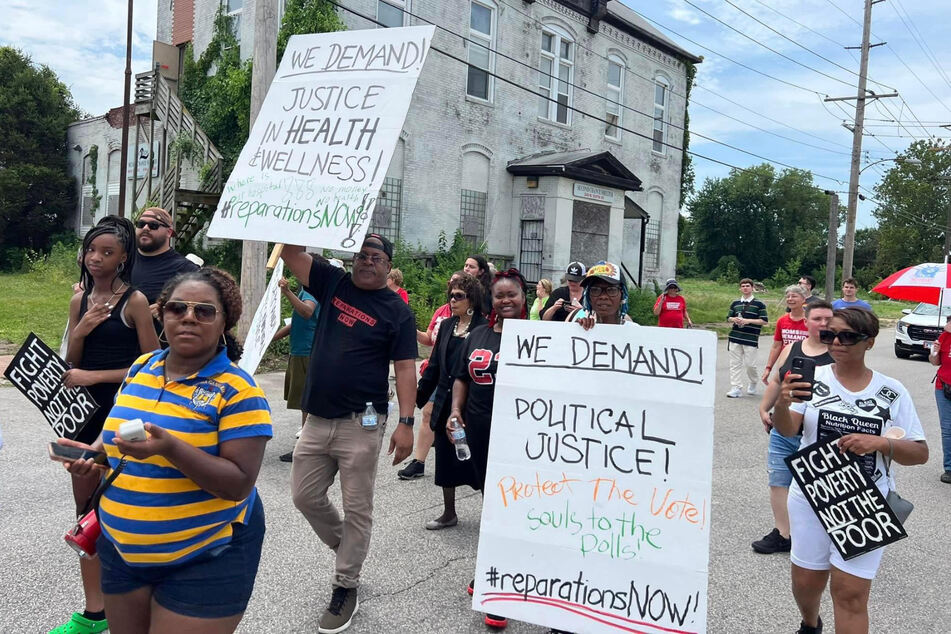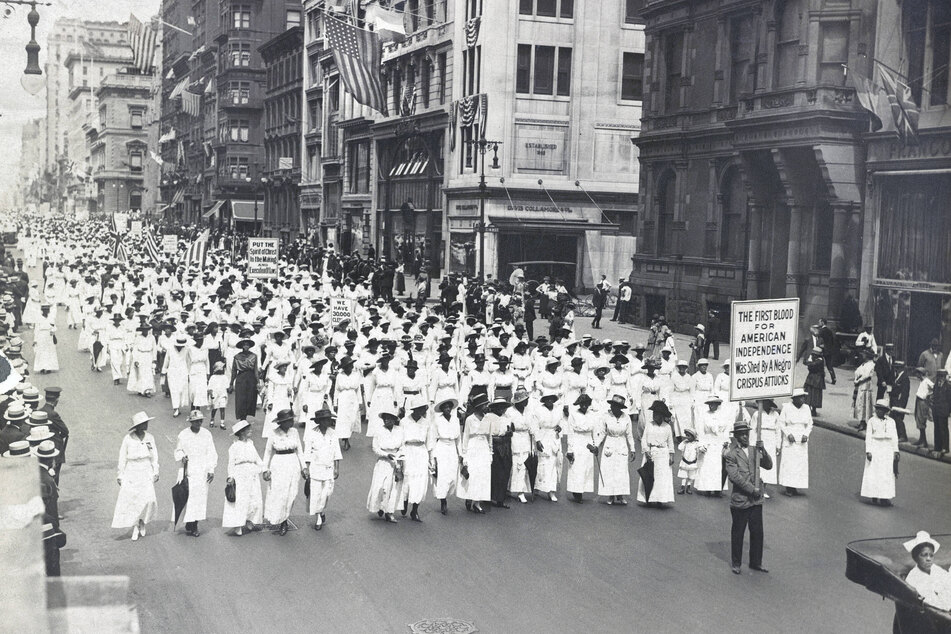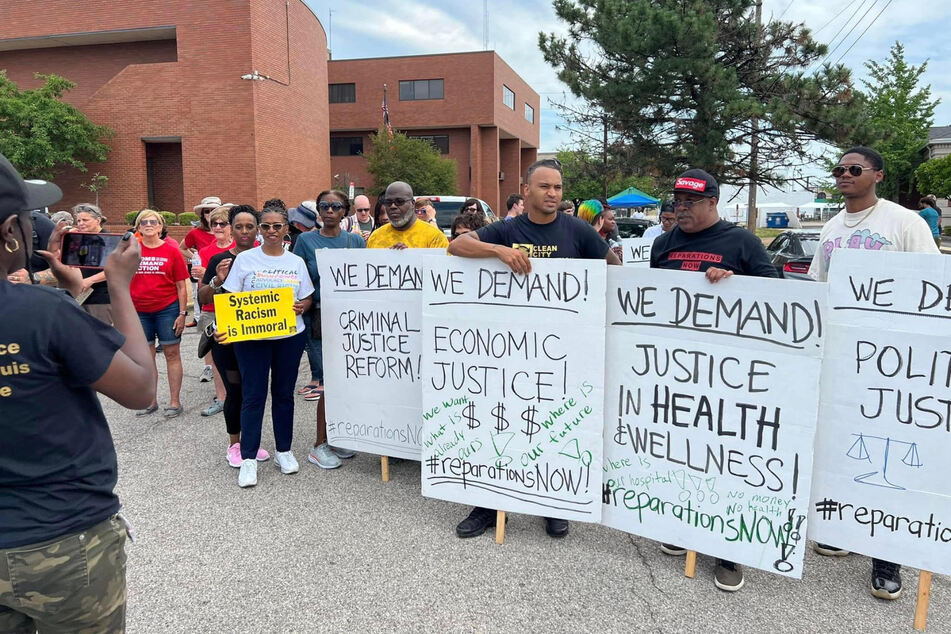East St. Louis community groups announce reparations committee for 1917 race massacre
East St. Louis, Illinois - Community groups in East St. Louis are banding together to form a committee to discuss reparations for the ravages wrought during the city's infamous 1917 race massacre.

The East St. Louis Reparations Committee will be tasked with studying and developing proposals to address the ongoing effects of the 1917 massacre and systemic racism on Black residents today.
Empire 13 and the Metro East Organizing Coalition shared the news during Saturday's annual march to honor the victims of the pogrom. More than 50 people turned out for the occasion.
"We're out here to raise awareness of the travesties and the atrocities that have happened in these multiple massacres, especially the 1917 East St. Louis race massacre that is not well known," JD Dixon, community activist and leader of Empire 13, told the crowd.
"We are out here to fight for justice and to fight for accountability, and in that fight and in the power of the people and the grassroots efforts, we are starting the very first East St. Louis Reparations Committee."
The 1917 East St. Louis race massacre

The East St. Louis race massacre began on July 1, 1917, when white workers were on strike at Aluminum Ore and the company hired strikebreakers, both Black and white, to fill their positions.
White union leaders were incensed when Black workers took up the jobs, even though many had little other choice to make a living under Jim Crow apartheid. Some striking workers even took to firing shots at the Black workers and into their homes.
Black communities organized to protect themselves. One night, two Black residents shot at a vehicle driving by and killed what turned out to be two undercover cops in an unmarked car, having mistaken them for attackers.
The retaliation was swift and severe. Accounts from the time describe a white mob setting homes and buildings ablaze, ripping Black babies from their mothers' arms and throwing them into the flames, gunning down Black people, and hanging Black bodies from trees. The Eads Bridge was blocked to prevent Black people from escaping while white law enforcement officers looked on.
Historians believe more than 100 Black people were killed and over 6,000 were forced to flee their homes in the brutal terrorist attack. The NAACP estimated the property damage alone to total at least $400,000 – more than $9.6 million in today's dollars.
The demand for reparations in East St. Louis

The East St. Louis attack is one of dozens of race massacres that took place in the years during and after World War I. The only time Black Americans have received compensation for these acts of white-supremacist violence was in Rosewood, Florida, for its 1923 race massacre.
The continued disenfranchisement of Black Americans in East St. Louis, as well as the 1917 massacre's omission from public education, make clear the urgent need for repair, community groups say.
"The impact of systemic racism is prevalent and the disproportionate crime rate, crumbling infrastructure, and environmental injustices in Black American communities is due to lack of resources stemming from systemic racism and violent genocides like the 1917 East St. Louis Race Massacre," Empire 13 wrote on Facebook. "To bring equity in our communities resources need to be allocated to our communities along with reparations that is owed due to systemic oppression."
The announcement of the East St. Louis Reparations Committee comes amid a string of victories for the US reparations movement. The California Reparations Task Force released its final report and recommendations last week as New York and New Jersey seek to follow suit. Cities around the country – from Evanston, Illinois, to Philadelphia, Pennsylvania – are also taking steps to reckon with their history of racial discrimination through reparatory justice.
The Metro East Organizing Coalition's Rev. Dr. Larita Rice-Barnes told the Belleville News-Democrat that the community groups have the support of the East St. Louis City Council and that the reparations committee will begin its work once the city council votes on the matter.
Cover photo: Screenshot/Facebook/JD Dixon

